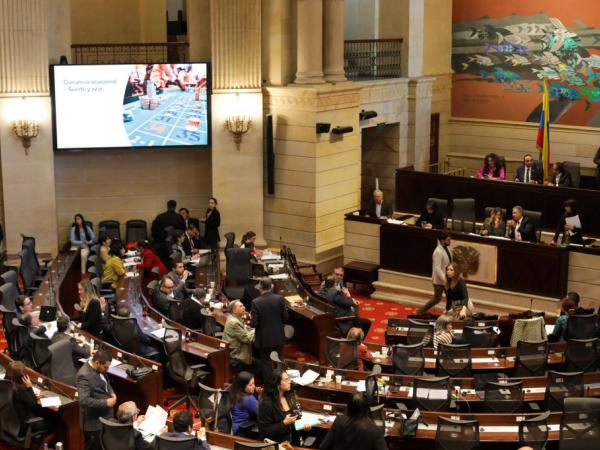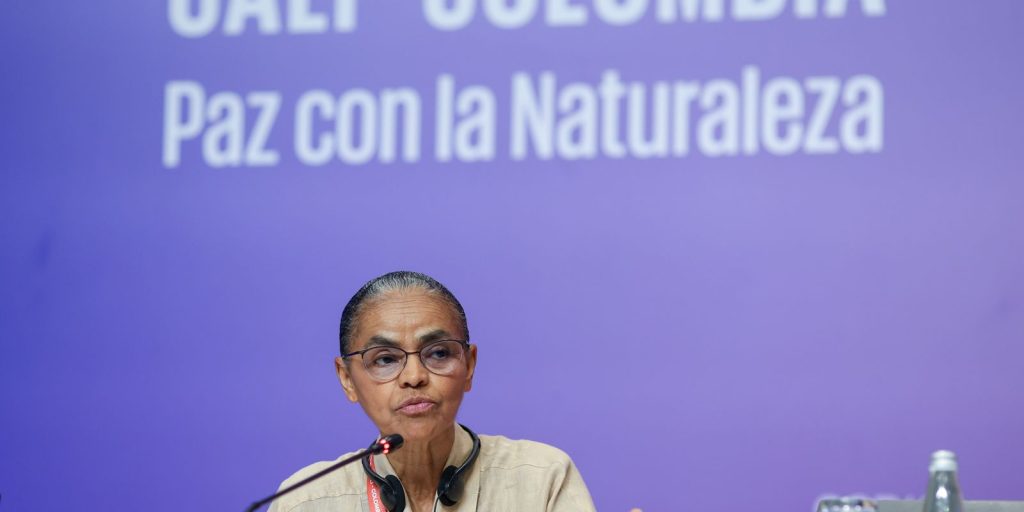With the election of speakers and its official presentation in the Congress of the Republic, last week everything was ready for the debates on the financing law to begin, one of the priorities of the National Government at this time, since the silver that It is needed to finance the gap in the 2025 General Budget of the Nation.
On several occasions, the Minister of Finance, Ricardo Bonilla, has said that it is a fiscally sustainable proposal and that it does not put the State’s finances at risk, since it uses the tools provided by the law to generate resources, which is why he invited Congress at the time to debate it thoroughly.
More information: The changes brought by the presentation of health reform 2.0 filed in Congress
“This project has 37 articles and is divided into three titles, which are part of the formal part of this structure, related firstly to the aspects of economic reactivation, secondly to aspects of climate change and thirdly, to the strengthening of the inspection, which are operational measures of the Dian,” he indicated in the official filing.
Bonilla González explained to the congressmen that “what we want, working on three fronts, is, for example, to promote and contribute to the reactivation through tax incentives. Likewise, review some complementary taxes to finance some components of the 2025 Budget, through the fight to adapt to climate change.”
Financing bill.
Private file
Although since the 2025 Budget conversations it was said that this project would be a priority as soon as it is filed, taking into account the role it plays in next year’s income projections, the Legislature’s priorities seem to be different at this time, since it is not on the agenda.
Portafolio spoke with the speaker coordinators of the project to find out the status of the process and verify that, for example, there is no urgent message from the National Government, so its approval times will be adjusted, since if everything continues like this, it will have to comply with four debates, two in the House and two in the Senate.
Representative Saray Robayo, of the U Party, assured that beyond the designation of those who will lead the process, there has not been the space to agree on ideas and positions, both from the National Government and from the interested sectors in companies, academia, monetary authorities and the political parties themselves.
“Last week they appointed speakers for the Financing Law, but so far we have not started meetings. It is still needed. As we have said in Congress, the country needs planning and execution. There is no need to increase people’s cost of living and even less to generate instability, that is why we are taking it calmly and responsibly,” he said.
Also read: The doubts that the SGP reform continues to generate, despite its progress in the Senate
Robayo Bechara added that at the moment he has no urgent message; although he explained that the times are still given, taking into account that the legislature runs until December 16 and the Government could summon them to extraordinary sessions, because this is an ordinary bill.
On the other hand, María del Mar Pizarro, who also coordinates the proposal, noted that “what this tax reform is seeking is not to collect more taxes from ordinary Colombians, but rather to collect more taxes from those who have extremely high incomes and issues. such as oil and the banking system, which is very good news for businessmen and especially for microentrepreneurs.”

Colombian pesos
iStock
“This financing law is immediately approved, the income tax is lowered from 35% to 27% for microbusinesses, and the income tax is also progressively lowered for small and medium-sized businesses. Those who pay taxes on games of chance are games of chance that are not on digital platforms. Then the playing field is leveled, now all games of chance are going to have to pay taxes,” he added.
Tax fatigue
One of the most frequent warnings regarding the financing law, both politically and economically, is that the stick is not for spoons, since the economy is not going through a good moment and this contractionary dynamic has been seen in fronts such as tax collection for this period, even going so far as to have to cut the Budget.
It is worth remembering that for experts such as José Ignacio López, president of Anifthe tax changes that the country has experienced in recent years have generated “fatigue” in the productive apparatus and the ability to generate new companies and ventures.
“I believe that at this moment, given that there is such a great tax fatigue in the country, I see it as very difficult, for example, to provide financing at this time, I believe that we are going to have to do an exhaustive review of the quality of the spending and how to prioritize those resources,” he stated.
Other news: Government seeks to reduce import quota for hybrid vehicles to encourage purchase
Meanwhile, Juan Carlos Valencia, partner at Holland & Knight, highlighted that the Colombian economy has not managed to move onto a path of reactivation and that weakness of the economy together with the particular proposals presented by the government in the financing bill would lead to think that this would not be the time suitable for increasing public spending and promoting greater increases in taxation.
“Unfortunately, I do not find positive aspects in the project. Firstly, it is indisputable that compliance with the fiscal rule has allowed Colombia to be in a privileged position and access the required credits at reasonable rates. Likewise, the proposal to make the fiscal rule more flexible, regardless of the purpose of the increased public spending, has received all kinds of criticism and questions from the international financial community,” Valencia said.

Ministry of Finance and Public Credit
Private file
Although there is enough time for Congress, this expert on issues tax officials recalled that in practice there is only a month and a half left of legislative activity and that with the accumulation of projects that are already in their final stretch, it does not seem responsible to propose this debate in a hurry, without the analysis and consensus that would be required.
“Congress already sent a very clear message by rejecting the $523 billion budget. This fact leads us to consider whether a budget by decree that replicates that same amount lacks the representation that the Constitution requires for both public income and expenses,” he concluded.
In total, there are $12 billion that the National Government hopes to raise with this initiative or else it will have to reduce its spending projections for 2025, since the law does not allow income to be less than expenditures in the General Budget of the Nation or otherwise the principle of balance for this norm would be violated.


















